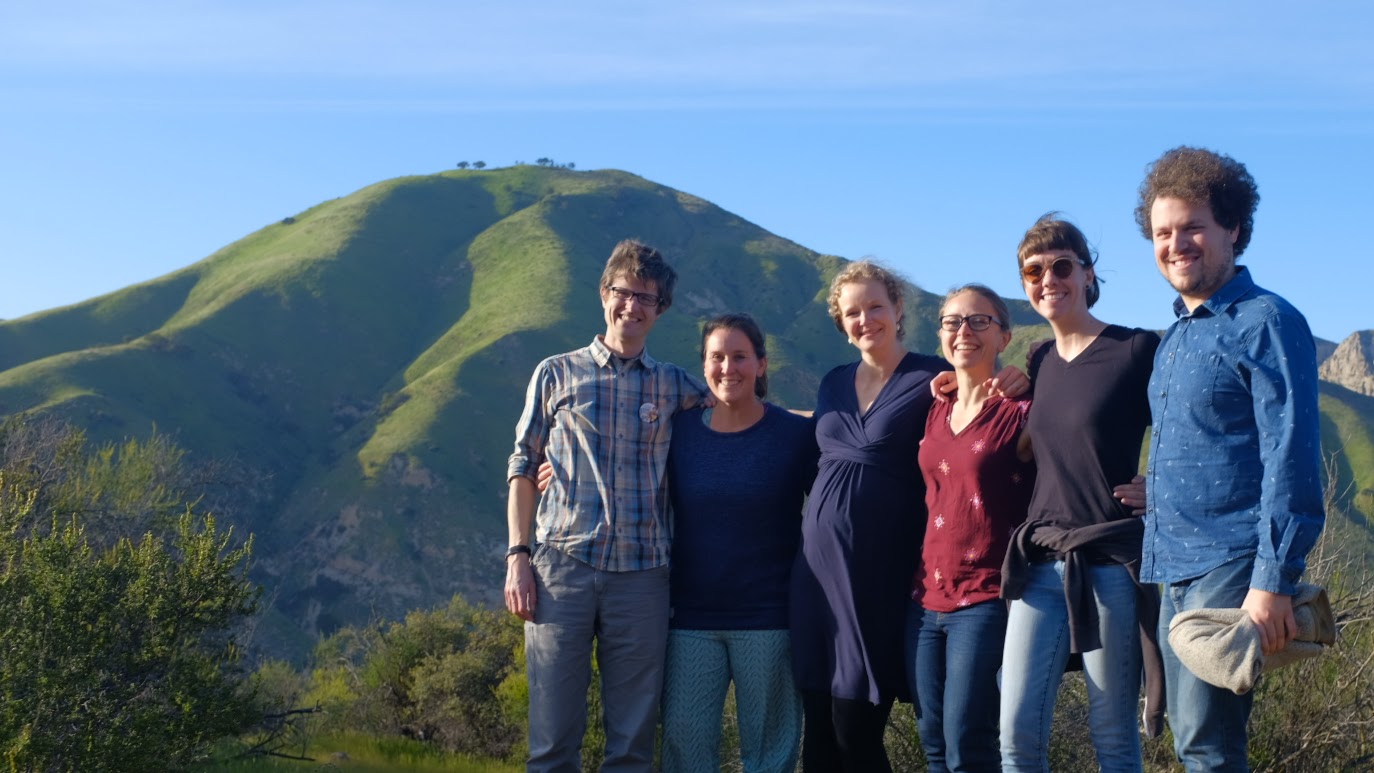Openscapes summit reflections 2 — Changing the way we do science
This article is cross-posted on medium.com
In March 2019 I witnessed environmental scientists become champions for open data science when we brought the inaugural cohort of Openscapes Champions together for a summit in Santa Barbara, California. The summit was supported by Mozilla and hosted at the National Center for Ecological Analysis and Synthesis (NCEAS) with the purpose of building relationships, sharing lessons learned, and igniting collaborations. This is the second of several blogs, with this one focusing on the themes that continually surfaced during our discussions. It was co-developed with Halley Froehlich, Adrian Stier, Allison Horst, Malin Pinsky, Chelsea Wood, Nina Therkildsen, Nishad Jayasundara, Christie Bahlai, and Sean Kross.
“How do we lead our labs in doing open science right? Also, what is right?”
This was a question that kept surfacing during our discussions at the Openscapes Champions Summit. And the answer that we kept coming back to was that we need an open mindset and think not only about our future selves as individuals, but also about our future selves as labs. That means working together with lab members to try create workflows and institutional memory, so it is not so much about doing it right but about working together to try to figure things out a little bit better. This means we have to be comfortable with the fact that the softwarescape will always be evolving and improving. And that we can be open to new ideas for the lab even though we ourselves have limited time. And that is okay. But if we have an open mindset, we can create an open culture where we can reflect and evolve together as a lab.
As we explored in the first summit blog about becoming champions, at the summit we felt for ourselves that what we are doing with Openscapes is not just about coding and GitHub, it’s about changing the way we do science. As we shared our progress and challenges, here are a few strategies we came up to sustain an open culture in our labs.
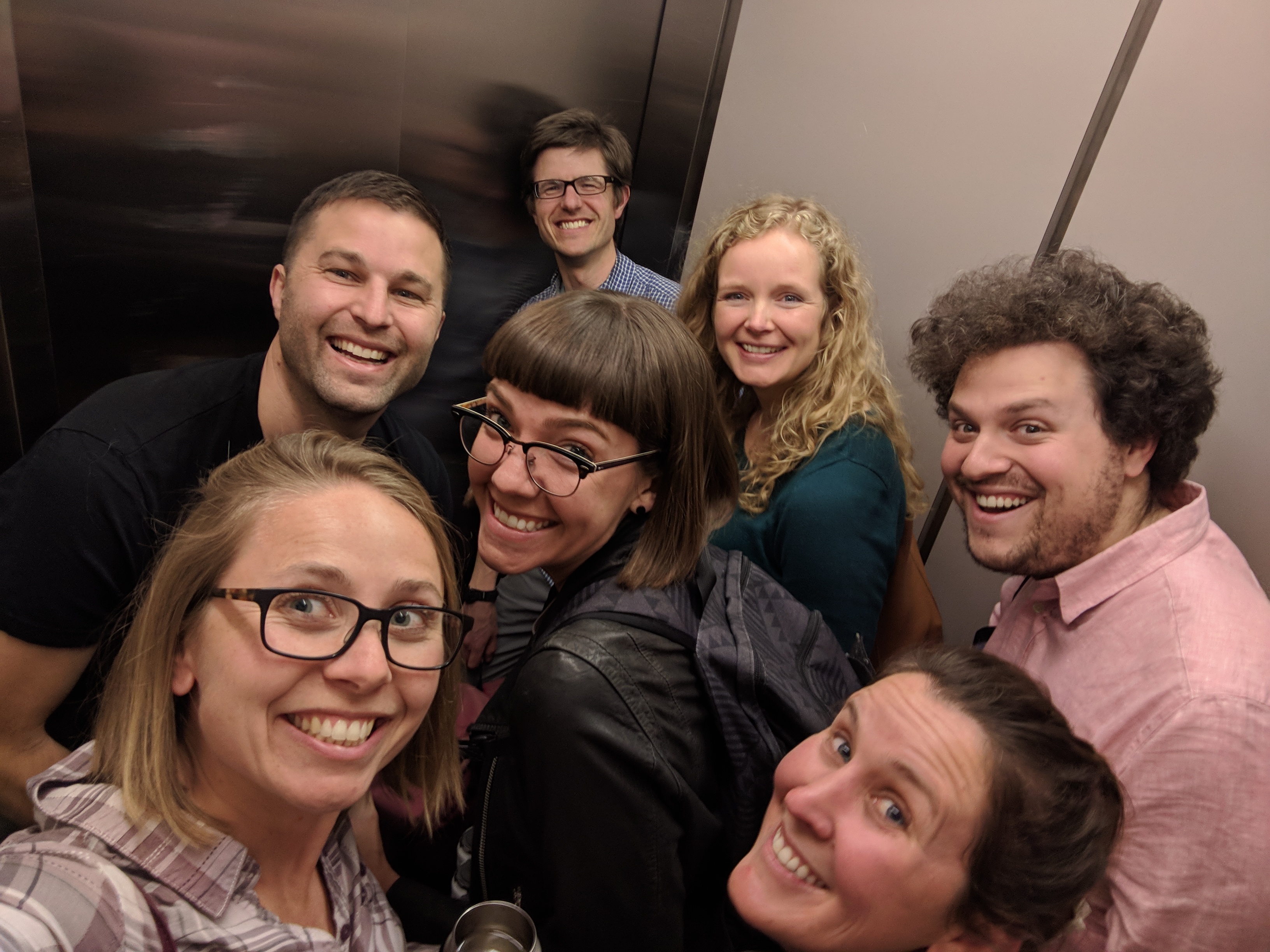
We have to be comfortable giving lab members agency in the digital space
For our labs to be efficient and leverage best practices from the open data science community, we need to be okay with lab members taking the lead. This is important because faculty do not have the time to do this themselves, and it is important growth and leadership opportunities for lab members. This means relinquishing some control over the way the lab operates in a digital space, but it also releases us from shouldering the burden of needing to know everything before teaching it to our labs – something that is unattainable but can still weigh us down mentally and slow progress overall.
It is okay for the lab to learn together and teach each other, in fact, it is really important leadership skills for scientists to develop, and the whole lab wins in the process. If we help set the tone of a lab culture of openness and collaboration, we can discuss strategies together and enable lab members to take the lead in setting up systems and making sure everyone has the opportunity to learn and participate.
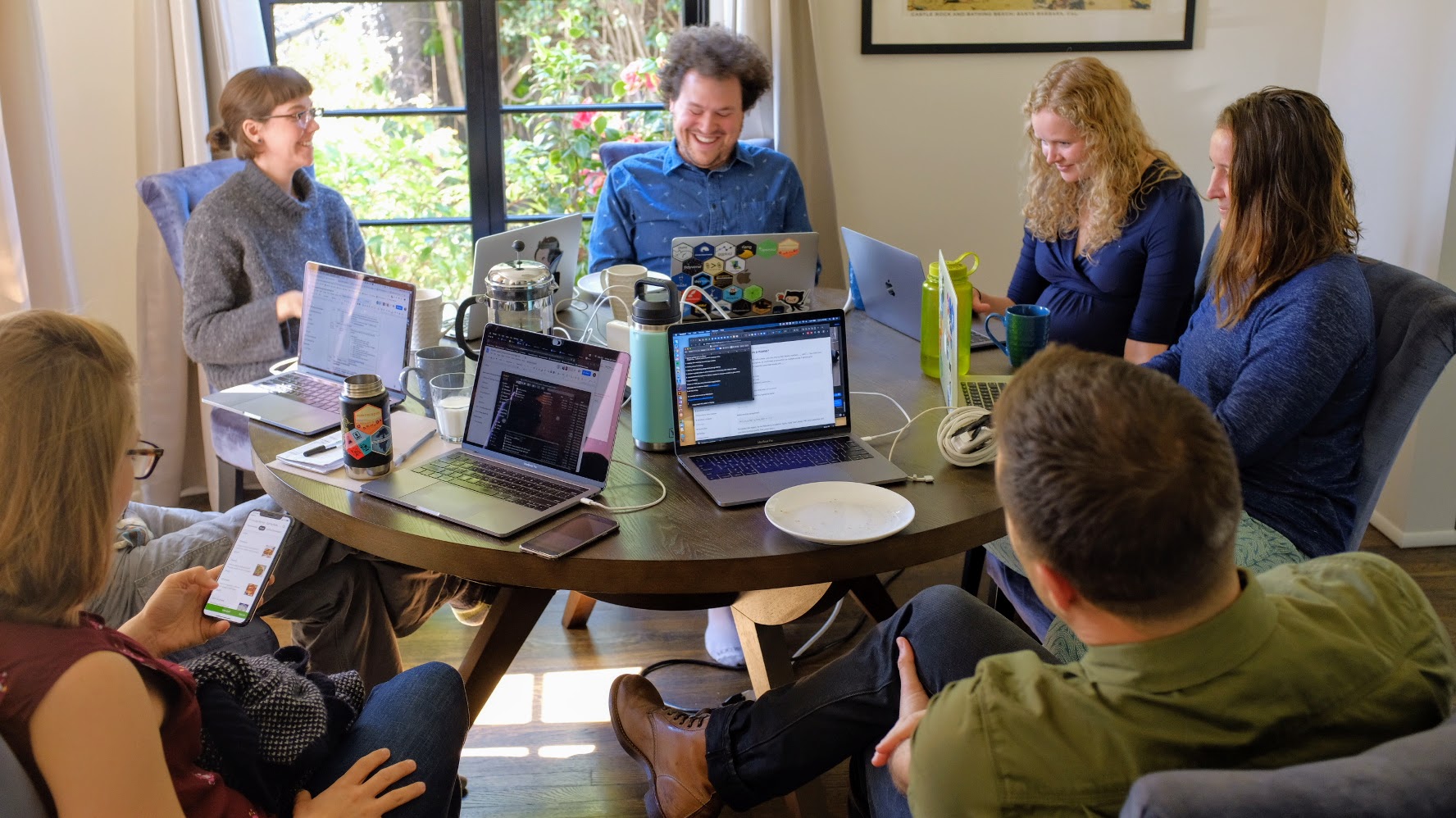
We all need onboarding and offboarding plans for our labs
Onboarding is the plan for integrating a new person into an organization or team. Although this concept is most familiar in industry, in science its need is equally clear: there are constantly students and lab members coming in and out of the lab. Traditionally, they have been setup with a set of keys and any lab protocols they might need to know. But now there is need to deliberately onboard them to become what Christie Bahlai calls “good digital citizens”. What do they need to know to be the best contributors to the lab, and to science? And what do they need to do before they leave to ensure there is not data and project knowledge lost when they leave? Since there are few opportunities to learn these practices in formal education, one place to learn it is in the lab.
Champions will be creating onboarding and offboarding strategies for their labs, likely as checklists. We discussed how policies could include that when you folks leave the lab they will transfer ownership of Google Folders and fork GitHub repositories. More to come on this as it is developed.
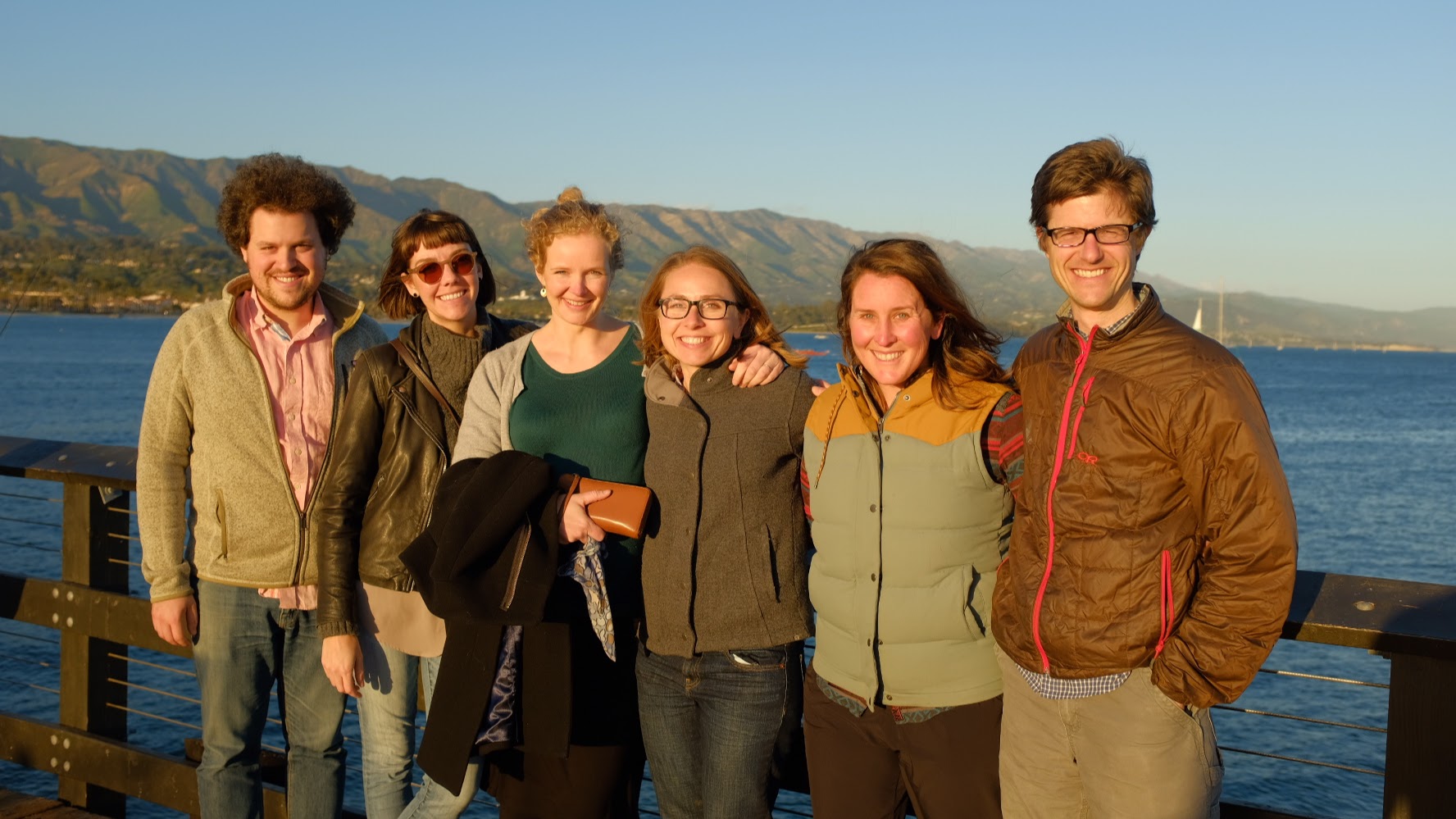
Hackathons are great strategies for labs to modernize workflows as a team
We talked about hackathons in the lab. Borrowed from the coding world, I think of hackathons as when a group comes together to work on something that isn’t their responsibility day-to-day. In the lab context, it is really useful for getting together to work on things that benefit the whole lab, but doesn’t fall under anyone’s day-to-day responsibilities. And they can be fun — this is a time for donuts and working in a different location.
Chelsea Wood talked about a few hackathons she has led with different collaborators: one on a large-scale international field project with multiple principle investigators, and one with her teaching assistants preparing for a course. Both involved being in the same physical place with everyone with a block of time so that everyone could focus and actually work on the same computer in some cases to discuss and set up a shared system. There is a lot more to say about hackathons, and we will continue sharing them in future posts.
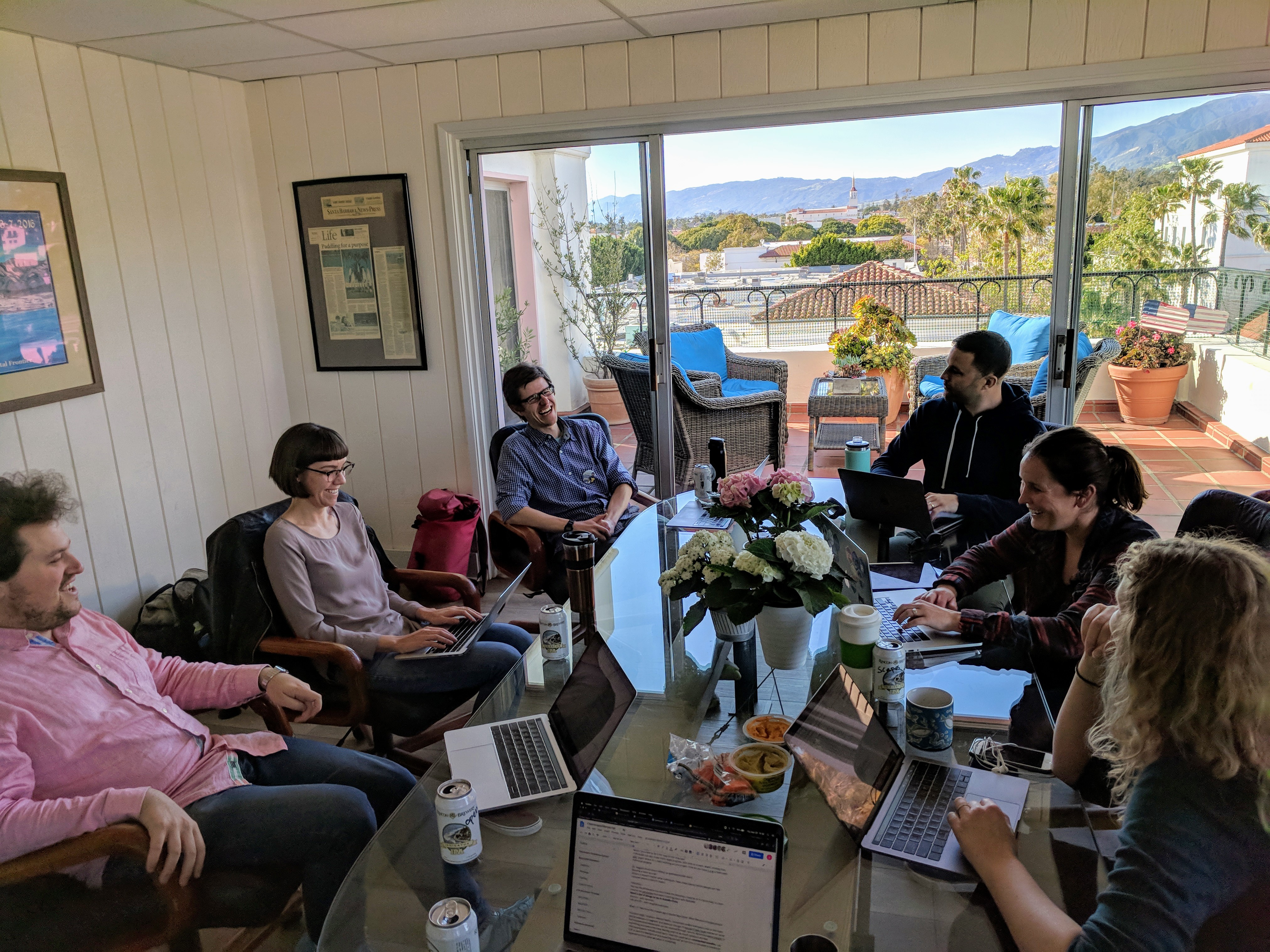
Open data science skills should be formally taught in our departments, and we should value the instructors that teach them
We discussed how open data science skills should really not be things we have to teach ourselves on our own time. Instead, they should be formally taught in our departments, with courses and continuing education available to anyone, including our students and ourselves. This means new courses offered, and dedicated people hired to teach them.
We learned a lot from Allison Horst sharing her experiences and strategies as a lecturer in an environmentally-focused graduate program offering data science courses. Over six years, she has transformed an inherited statistics course from being one of students’ least favorite courses to being one of their most valuable overall experiences. She is incredibly dedicated to her students and invests a lot of time making sure she is teaching them the best she can, which means she herself is constantly learning and then improving lessons. In addition to modernizing all her lectures with the tidyverse, she has taken what we learned in Openscapes to organize and share all her advanced course lessons online (stay tuned for the intro course lessons). And, she has just been recognized at the university-level for her efforts, as she won UCSB’s 2019 Distinguished Teaching Award.
This is a good take-home message to end this whole post: We need to change the way we do science and to help prepare our students for the data-rich world we live in. And this means we need open data science skills taught, and although most faculty do not have the bandwidth or expertise to teach such courses, there are fantastic and motivated teachers who can. We need to value the teaching and the teachers, and we all need to do our part to champion this moving forward.
